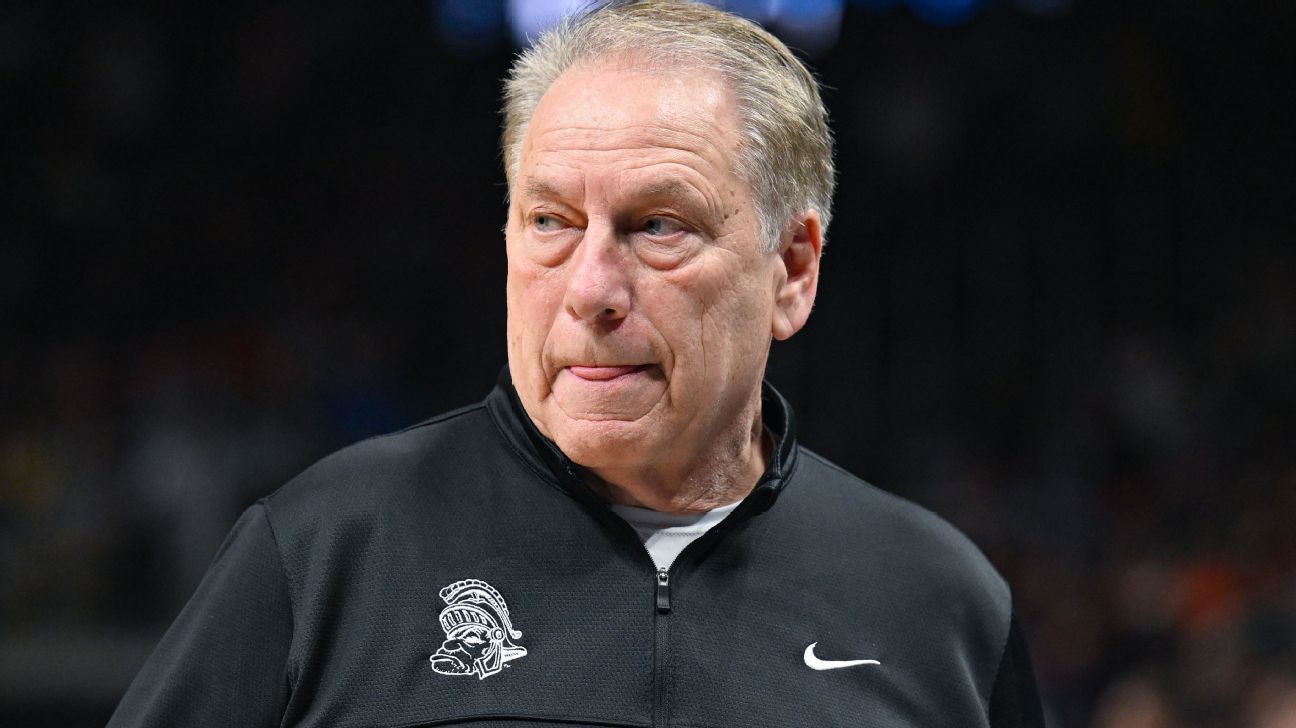UPDATE: Michigan State coach Tom Izzo has launched a scathing critique of the NCAA following the controversial eligibility of former G League players to join Division I programs. Izzo’s comments come after London Johnson and Thierry Darlan announced commitments to Louisville and Santa Clara, respectively, igniting a firestorm of debate about the NCAA’s shifting eligibility rules.
Izzo expressed his frustration during a press conference on October 24, 2023, stating that he does not “respect” the NCAA officials who allowed these changes without consulting coaches. “This was sprung on us again yesterday where a guy can be in the G League for two or three years and then all of a sudden, he’s eligible,” he said. The implications of this ruling could reshape college basketball as high school recruits risk losing their spots to older, experienced players.
The NCAA historically barred athletes who had competed for compensation from playing college sports. However, this ruling marks a significant departure from the past, where any professional experience disqualified players from NCAA competition. Izzo argued that the NCAA’s recent decisions reflect a deeper issue within the organization. “They’re afraid they’re going to get sued,” he noted, criticizing the lack of communication with coaches regarding such critical changes.
Johnson, a former four-star recruit averaging 7.6 points per game in the G League, is now poised to compete in Division I basketball, potentially setting a precedent for other players. Darlan, who hails from the Central African Republic, previously participated in the NBA Academy Africa program and became the first G League player ever to gain NCAA eligibility.
Izzo warned that this shift could lead to chaos within college basketball, stating, “College basketball has ‘no rules’ right now.” He emphasized the potential fallout for high school seniors who could see their opportunities vanish to make room for older G League players. “That’s somebody’s son and he thinks he’s got himself a good place, and all of a sudden, shazam, they pull out of their hat and bring a 21- or 22-year-old in.”
The Michigan State coach called for the NCAA to reconsider the “unintended consequences” of their decisions, urging a reevaluation of the current framework governing college athletics. “The NCAA has got to regroup. They’ve got to regroup,” he underscored, expressing concern over the long-term effects of these changes on the sport.
Izzo’s remarks come at a crucial time as the landscape of college sports continues to evolve amidst the ongoing debate over name, image, and likeness (NIL) rights and the blurred lines between professional and amateur status. The growing trend of G League players entering the NCAA could change recruitment strategies and alter the future of collegiate athletics.
As this situation develops, many in the basketball community will be watching closely to see how the NCAA responds and what further implications these changes may have for the sport. Will the NCAA take action to clarify its rules, or will the trend of G League players entering Division I continue to grow? Only time will tell, but one thing is certain: the conversation around eligibility and amateurism in college basketball is far from over.
